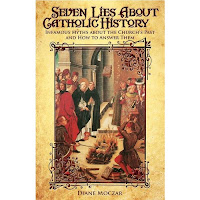Here is how Diance Moczar in Seven Lies About Catholic History sums up:
 Galileo’s
version of heavenly motion included details, such as perfect circular motion
for the planets, which failed to satisfy other astronomers on technical grounds…
When he began to champion the Copernican theory as a fact, he was met not only
with scientific skepticism but also with the problem of those scriptural
passages that appeared to contradict the theory. Convinced as usual that he was
absolutely right, and impatient with the skeptics, Galileo went to Rome to try
to obtain support... The Pope tried to persuade his headstrong friend to
espouse Copernicus’s idea as the mere theory it was... [Furthermore] the papacy—still
anxious to heal the Protestant rupture—was concerned with not appearing to
support an idea that scandalized the Lutherans and Calvinists
Galileo’s
version of heavenly motion included details, such as perfect circular motion
for the planets, which failed to satisfy other astronomers on technical grounds…
When he began to champion the Copernican theory as a fact, he was met not only
with scientific skepticism but also with the problem of those scriptural
passages that appeared to contradict the theory. Convinced as usual that he was
absolutely right, and impatient with the skeptics, Galileo went to Rome to try
to obtain support... The Pope tried to persuade his headstrong friend to
espouse Copernicus’s idea as the mere theory it was... [Furthermore] the papacy—still
anxious to heal the Protestant rupture—was concerned with not appearing to
support an idea that scandalized the Lutherans and Calvinists
Galileo,
however, seemed to have little sensitivity to the delicacy of the issue, and he
went on the offensive... [He] related in a letter how he had dealt with the
controversy at a dinner party in a fashionable house. “I commenced,” he
boasted, “to play the theologian.” Were his enemies using Scripture against
him? He could interpret Scripture too, and he would demonstrate that in fact
Scripture supported him and not his opponents. Thus Galileo claimed the right
to decide what Scripture means in the light of his unproven theory...
Then Galileo publically humiliated
his friend Pope Urban by publishing a fictional debate between characters supporting
Galileo’s views and a fool (“Simplicio”) who supports Aristotle, making it
clear that the fool personified the Pope.
Galileo had very publically thrown down the gauntlet by claiming
theological authority and dismissing the Pope as a simpleton.
No comments:
Post a Comment